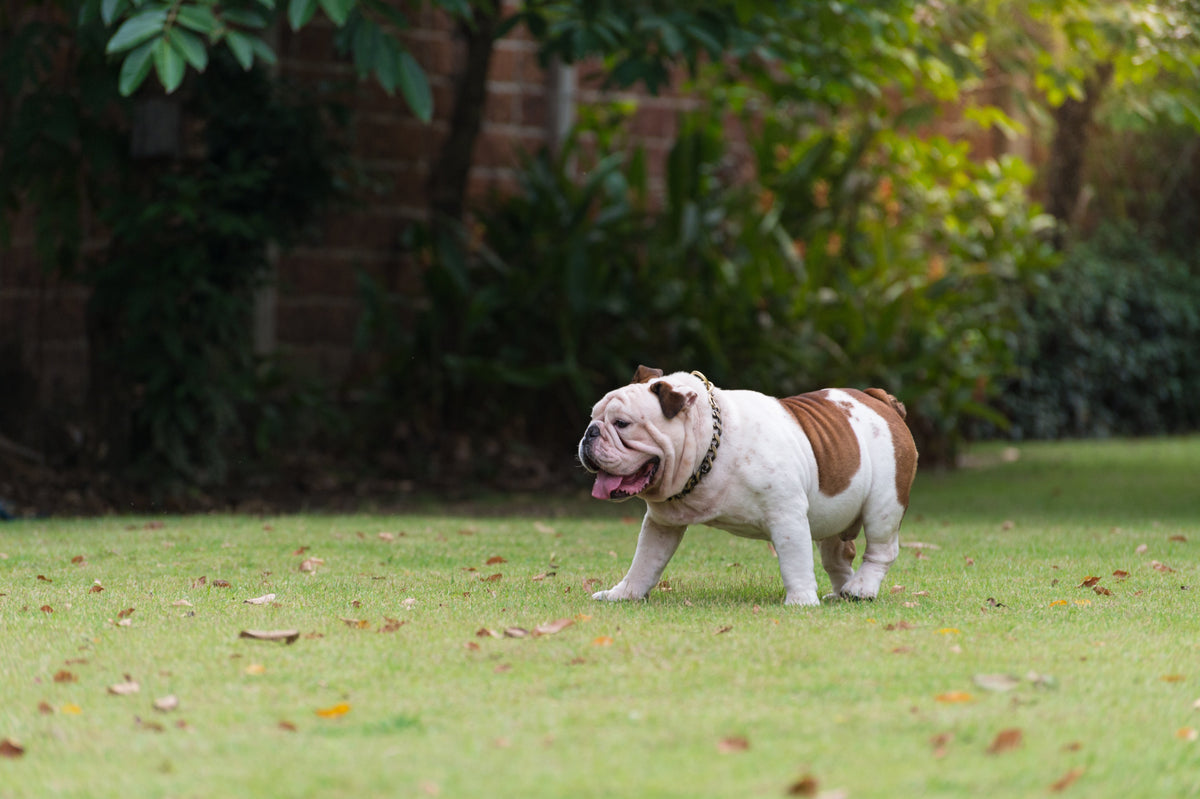In 24 cities

Combating Obesity in Dogs: Everything You Need to Know
|
|
Time to read 5 min
Get product availability and delivery timelines based on your location.
Are you sure you want to delete this address?
Help us ensure a smooth delivery
Help us ensure a smooth delivery
SIZE GUIDE
|
|
Time to read 5 min
Attention all dog lovers! It's no secret that our furry friends hold a special place in our hearts. We shower them with love, affection, and of course, treats. But, did you know that overindulging our dogs can lead to some serious health issues? That's right, obesity in dogs is no joke.
We all know the tell-tale signs of a pudgy pooch - struggling to jump on the couch, huffing and puffing after a short walk, and, let's be honest, a little too much jiggle in the wiggle. But, what you might not realize is that obesity can lead to a plethora of health problems that can put your furry friend's life at risk. Yikes!
But, fear not! With a little bit of knowledge and some simple steps, you can help your four-legged friend lose those extra pounds and get back to their happy, healthy selves.
So, let's dig in and learn how to keep our dogs in tip-top shape!
Obesity in dogs can lead to several signs and symptoms, including:
If you notice any of these signs or symptoms in your dog, it is important to seek medical attention as soon as possible.
NOTE: Exercise, eating a healthy diet, and intake of nutrition supplements can help boost the body's metabolism and help reduce weight.
NOTE: If a dog becomes overweight, it may experience physical problems such as heart disease, diabetes, arthritis and hip issues.
Of course, as much as we love our dogs and want to spoil them with tasty treats, it's important to keep in mind that some foods can contribute to obesity. Here are some foods to avoid or limit:
Avoid high-fat treats: Fatty treats like bacon, cheese, and fried foods might be tempting to share with your furry friend, but they can pack on the pounds quickly.
Avoid Human food: As much as our dogs might beg for scraps from the dinner table, human food is often too calorie-dense and can lead to weight gain.
Avoid Sugary snacks: Just like in humans, sugary snacks like candy, cake, and even some fruits can lead to weight gain in dogs.
Limit Carbohydrates: While carbs are an important part of a balanced diet, too many can contribute to weight gain. Be sure to monitor your dog's intake of grains, potatoes, and other carbohydrate-rich foods.
Obesity in dogs can cause a number of medical issues, including joint pain, exercise intolerance, and difficulty breathing. Dogs that are obese can develop diabetes and heart disease, among serious health issues. Excess weight can also damage the cardiovascular system and bones, making them prone to arthritis.
In addition to these physical problems, overweight dogs experience increased susceptibility to heat stroke due to their inability to regulate their body temperature. Thus, it is important that overweight dogs receive proper nutrition and exercise so they can live healthy and active lives.
If your dog is overweight, it's vital to treat the condition using a multifactorial approach.
One of the key factors in treating obesity in dogs involves ensuring your dog gets the exercise it needs. This can be done through daily walks or play sessions, or by incorporating physical activity into your dog's regular activities, such as going for a walk or playing fetch. Also, make sure to provide your dog with plenty of healthy food and fresh water, and avoid fatty, sugary snacks.
Eating healthy meals and treats is essential. When feeding your dog, be mindful of portion sizes and make sure to measure. Recommended feeding quantities can be found at the back of the food packet. You can also speak to a vet for recommended quantities.
Finally, monitor your dog's weight regularly and seek medical attention if its body condition score becomes unhealthy. By following these steps, you can help prevent your dog from developing obesity-related diseases.
This heartbreaking truth is something that every dog lover needs to know when it comes to the problem of obesity in dogs. Think about it - our dogs look to us for guidance when it comes to food. They trust us to provide them with the nourishment they need to thrive. It's a gut-wrenching realization.
So, let's make a promise to our furry friends to prioritize their health. Let's limit their intake of high-fat, sugar, and high-carb foods, and opt for a balanced diet that supports their well-being. Our dogs trust us to make the right choices, let's not let them down.
If you feel that your dog needs a consultation regarding any such problems, feel free to visit our website for veterinary consultation.
Share this blog
Read More Articles


2 item in cart
₹10,360